Trading quotes distill the complex trading world into insightful, bite-sized nuggets of wisdom. No matter your level of experience, you’re sure to find value in these 20 trading quotes from some of the greatest traders.
In this post, I’ll share some of my favorite trading quotes from what I consider to be a few of the world’s greatest traders.
Also, as with my investing quotes, I’ve included the quote images in a high-resolution format. Enjoy!
George Soros

We’ll start with George Soros, one of the most well-known and successful traders. Soros was born in Hungary, but at 17, he moved to England to attend the London School of Economics, where he put himself through school. He went on to become a billionaire hedge fund tycoon and philanthropist. Soros is perhaps most well-known for his 1992 shorting of the British pound, which reportedly earned him $1 billion in profit and gave him the nickname “the man who broke the Bank of England.”
Soros is also well-known for his many quotable lines. Here are some of his best.
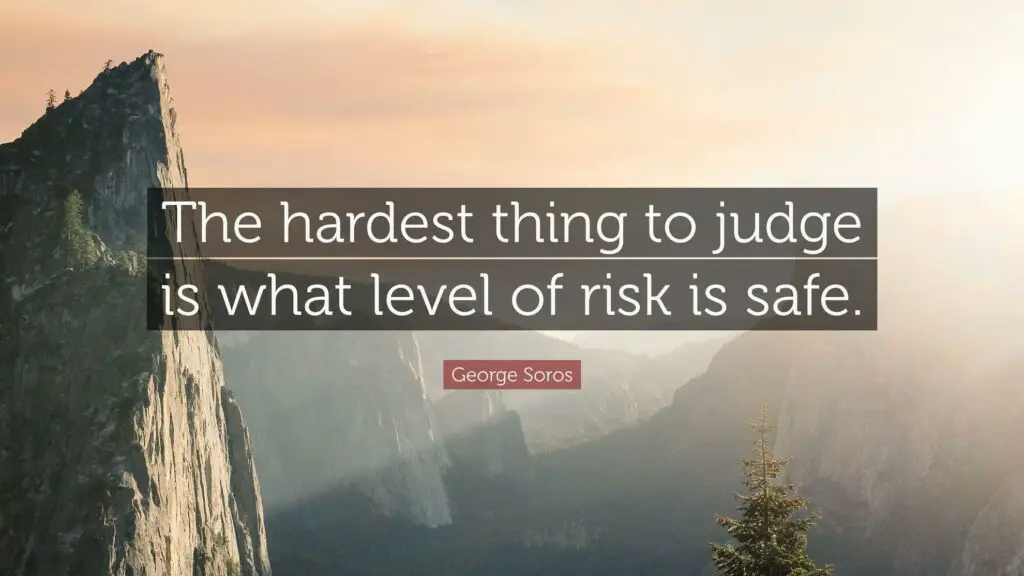
Figure out what level of risk you can handle, and then stick with it. You cannot allow the temptation of high returns to lure you into investments that exceed your risk level only to cut the trade short due to sleepless nights, and you cannot allow the fear of loss to keep you from taking on any risk at all.

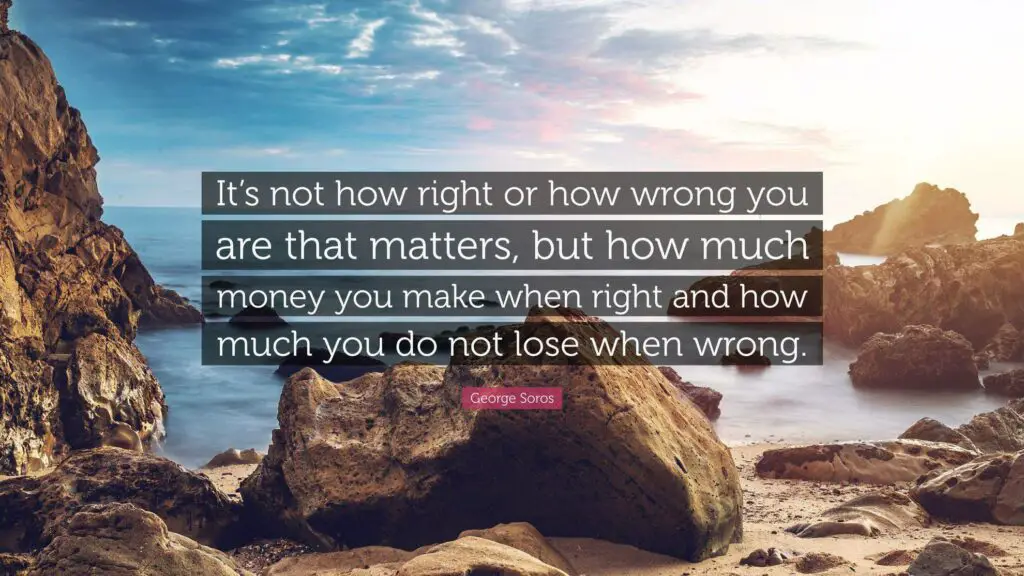
Together, these two quotes show us something important. Trading is not about always making the right bet. The key is to make a lot of money when you’re right and lose as little as possible when you’re wrong. A great trader accepts that they were mistaken and makes the appropriate corrections. If you want to be a successful trader, you’ll need enough humility to admit when you’re wrong. The more quickly you can accept being incorrect, the faster you can take the necessary steps to limit your losses.
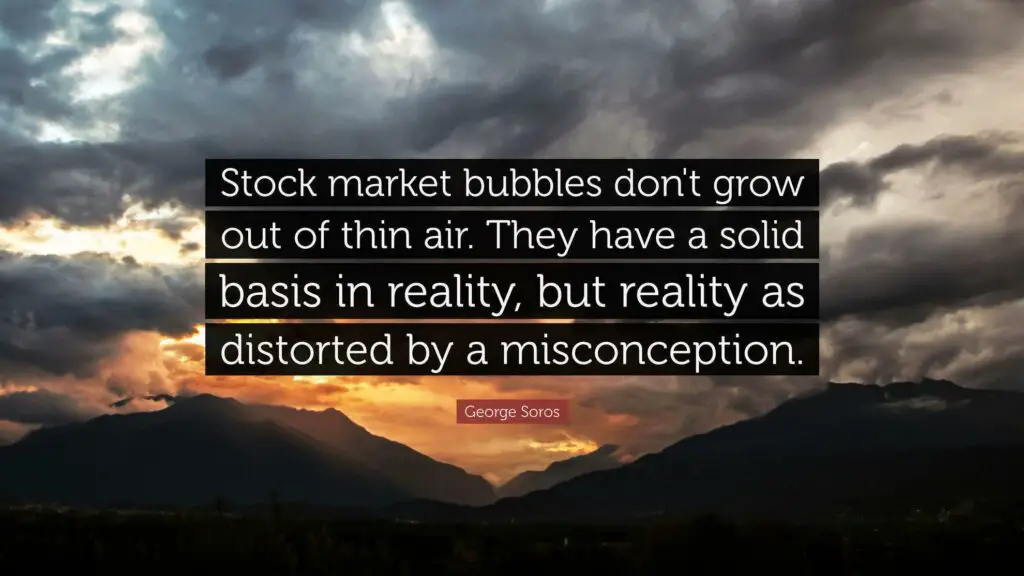
The concept of misconceptions and their role in the market continues in this quote. Like Soros says, the typical view is that the markets are always right – value depends on what someone will or will not pay for something. If someone pays a specific price for a particular stock, that is the “right” value for that stock. Taking the opposite view, as Soros suggests, completely shifts the way we think about value. Instead of looking for reasons why the market is priced as it is, we take a more contrarian view and try to find which misconceptions about the future impact current values. Once you find the misconceptions, you can take a position that allows you to profit from them.
Stanley Druckenmiller
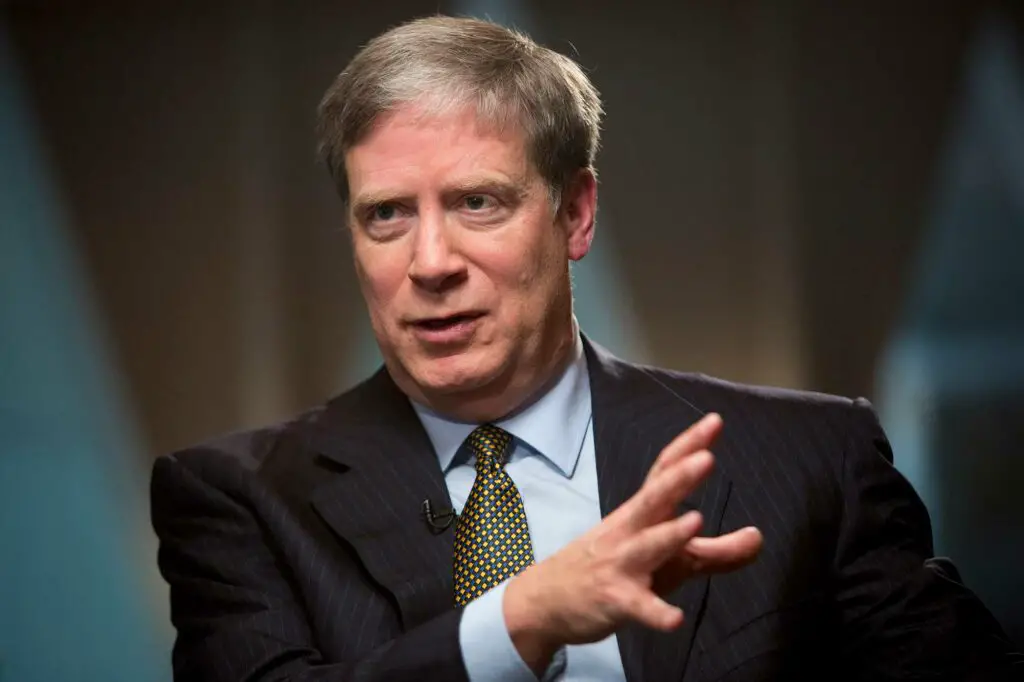
Billionaire investor Stanley Druckenmiller is next on our list. From 1988 to 2000, Druckenmiller managed money in Quantum Fund, the hedge fund run by George Soros. In 2000, he began his own fund, Duquesne Capital Management, which managed $12 billion at its peak.
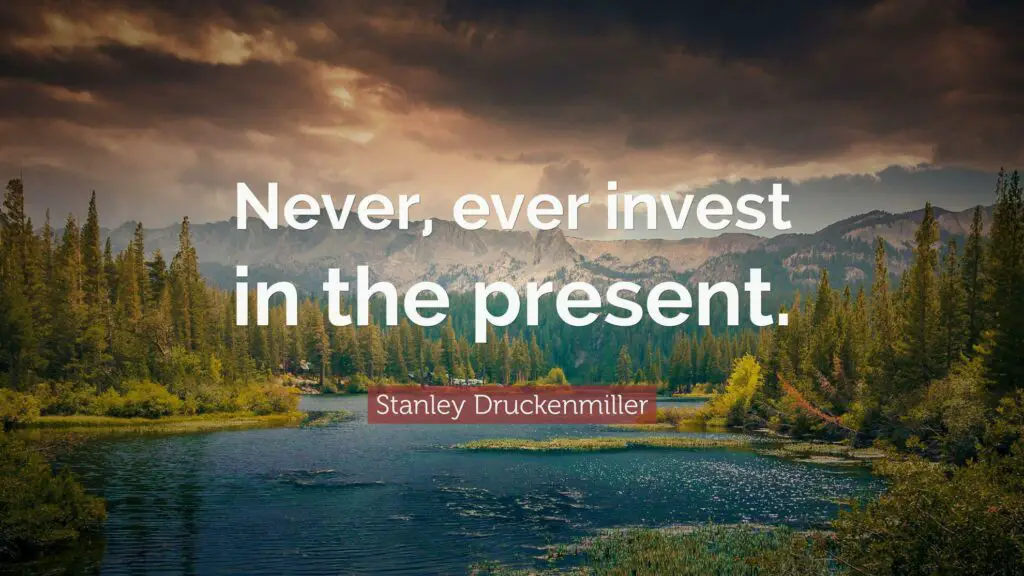
Traders must keep their eyes on the current state of the market, but an awareness of current events and reacting to present events are very different. What’s happening right now in the market is less important than the future discounted cash flows of the market. To put it more simply, think of Tesla. It loses tons of money each year but has value because of the company’s future expectations.
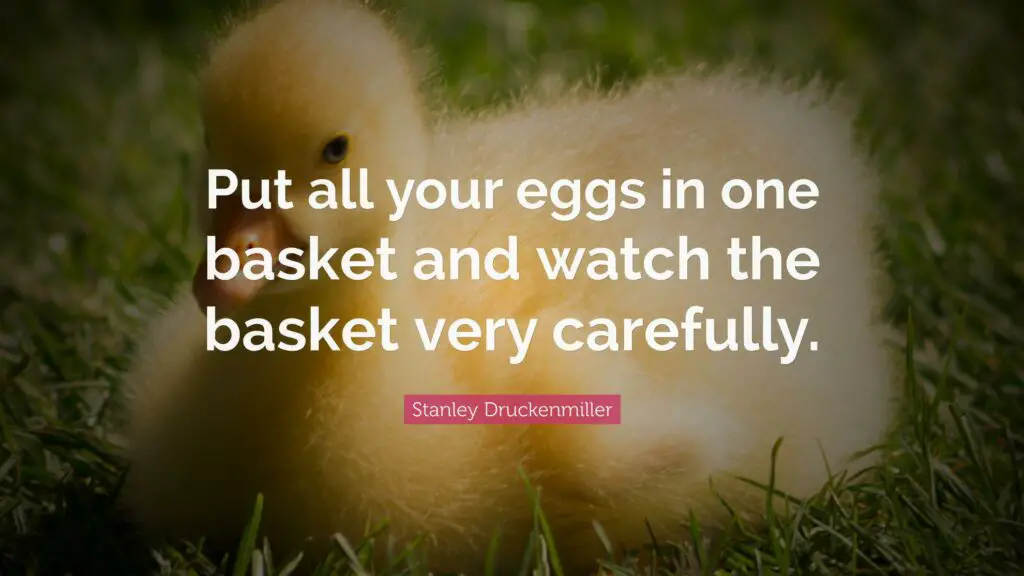
Here Druck is telling us to watch the signal and not the noise. In a speech he gave in 2015, Druckenmiller said, “the mistake I’d say 98 percent of money managers and individuals make is they feel like they’ve got to be playing with a bunch of stuff.” Don’t become part of the 98% that gets so caught up in all the extra “stuff” that you lose sight of what you should watch.

You should always ask yourself why you’re hedging when you hedge a trade. If your answer is because you have little faith in the trade, it’s probably not a trade you should be making. This is not to say that hedging doesn’t have its place. You’ll notice that Druckenmiller doesn’t say “never hedge” but instead that he doesn’t like it. Hedging can be a helpful tool, but make sure you’re not just in a trade but the right trade.
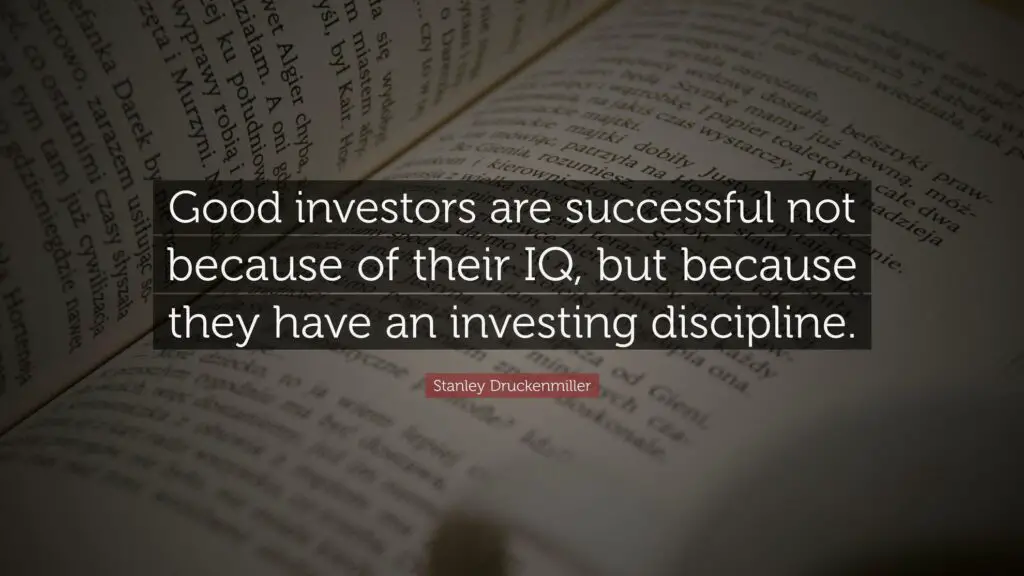
It’s easy to assume that the most successful traders have a superior intellect, but surprisingly, many of the most successful traders have said some version of this quote. And it’s true. Trading is not just about intelligence. Most that invest and trade the markets are intelligent. What differentiates is the right mindset and the discipline to stick with your system.
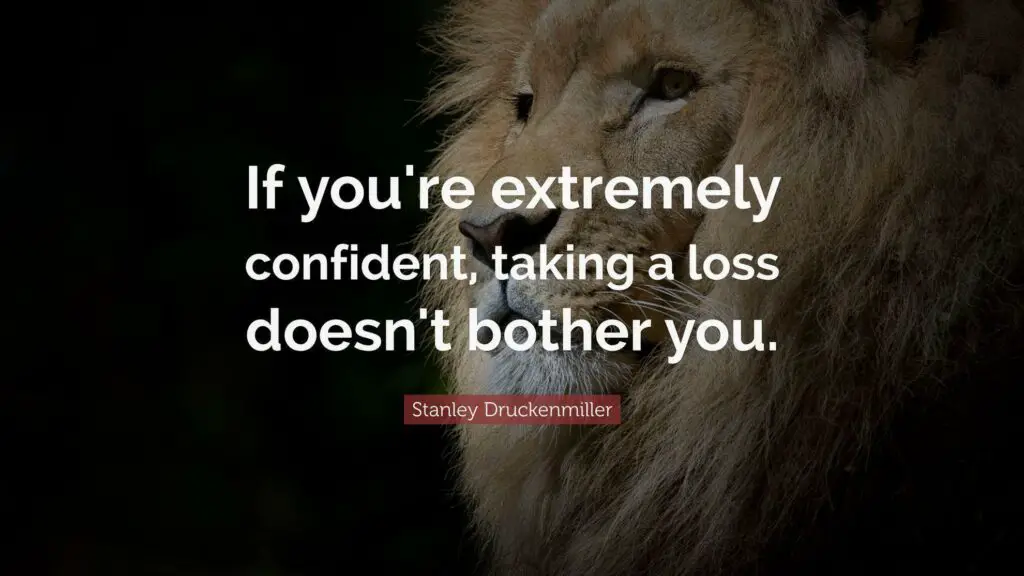
Druckenmiller says he learned from George Soros, who he said was “the best loss taker I’ve ever seen. He doesn’t care whether he wins or loses on a trade. George is confident enough about his ability to win on other trades that he can easily walk away from the position.” If you’re trading, you will have losses. Therefore, you have to have enough confidence in yourself and your system that you don’t lose faith in yourself or your strategy when the losses occur. The moment you let a loss bother you, it interferes with your other trades.
David Tepper
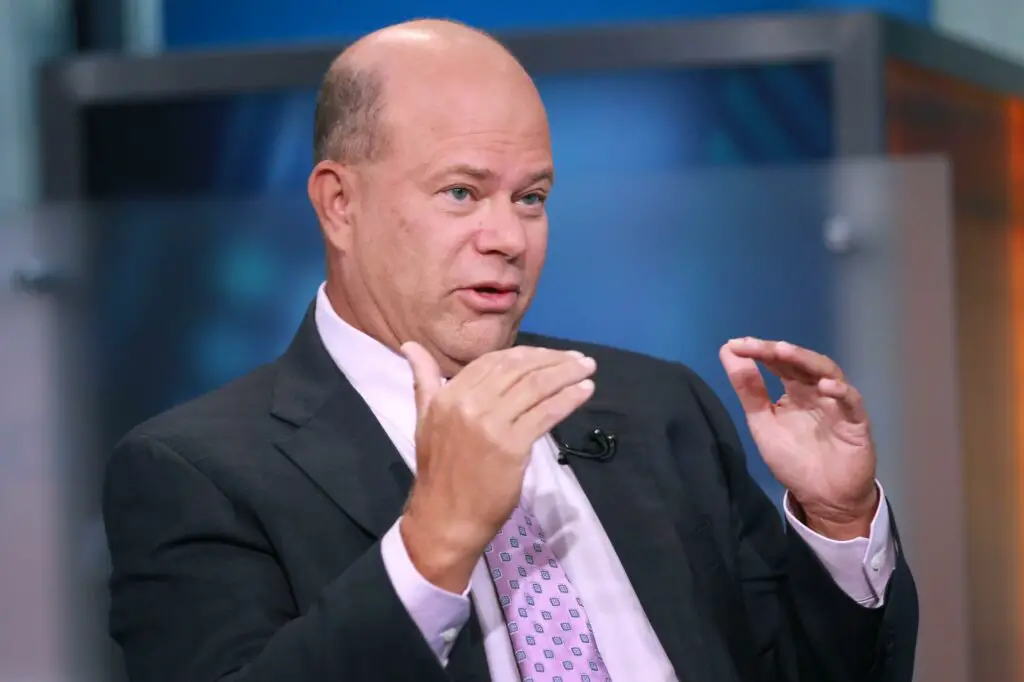
David Tepper is one of the most successful hedge fund managers. His hedge fund firm, Appaloosa Management, managed 20 billion at its peak. Tepper started the firm in 1993 after being passed over for partner at Goldman Sachs, where he served as the head of the junk bond desk. Tepper’s net worth sits at about 13 billion, and in 2018 he purchased the Carolina Panthers, football team. Tepper has many insightful quotes. Here are some of his best.
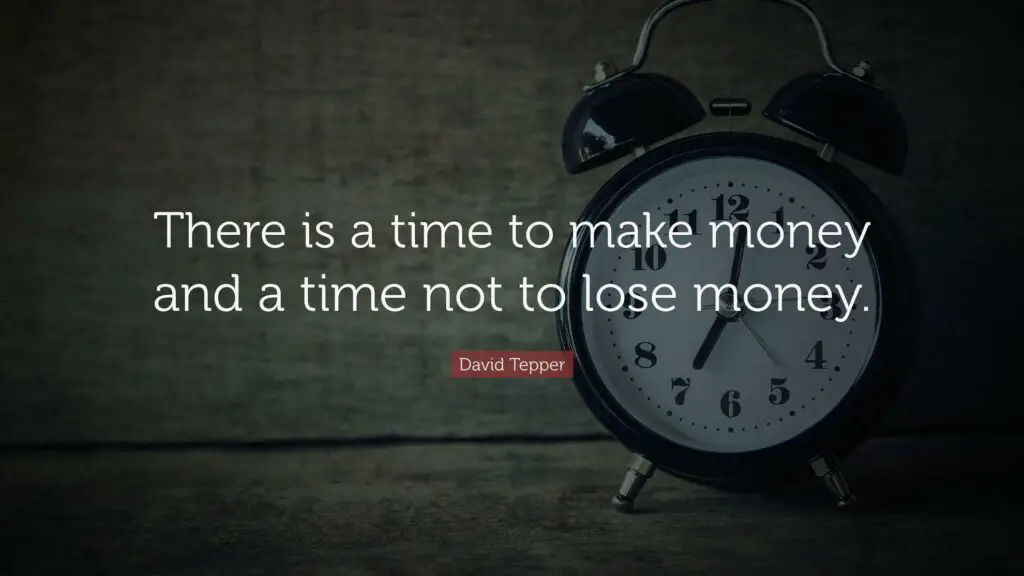
This quote is all about understanding the present market regime and current valuations. The goal of all trades is to make a profit, but based on the circumstances, sometimes the focus should be on taking advantage of the upside, while other times, it should be on limiting the downside. Each has its place. If you only ever focus on increasing profits, you may risk too much. On the other hand, if you only ever focus on not losing money, you’ll miss out on many opportunities to increase profits. Successful investing and trading require a healthy balance that allows for both.

So much of the advice about trading is about when to make a move. This makes it easy to forget that a large part of investing is waiting for the market to realize an asset’s value. This should be the easiest part in theory, but anyone who has ever traded knows this is not the case.
As you watch the market move up or down, it’s easy to become caught up in the excitement – you watch your potential profits increase, and you want to get out while the getting is good, or you see profits disappear, and you fear things will only get worse. Often, the most challenging thing to do is to stick with your strategy, stay the course, and do nothing.

It is human nature to want what we perceive to be valuable. Therefore, when things are valued highly, we want them. While in some areas of life, this is fine, but it can be dangerous when it comes to trading. Tepper’s comment here describes a better approach. A high-flyer can be great, but only if you get in well before it starts flying high. If you purchase it at the top, the only place for it to go is down.
Paul Tudor Jones
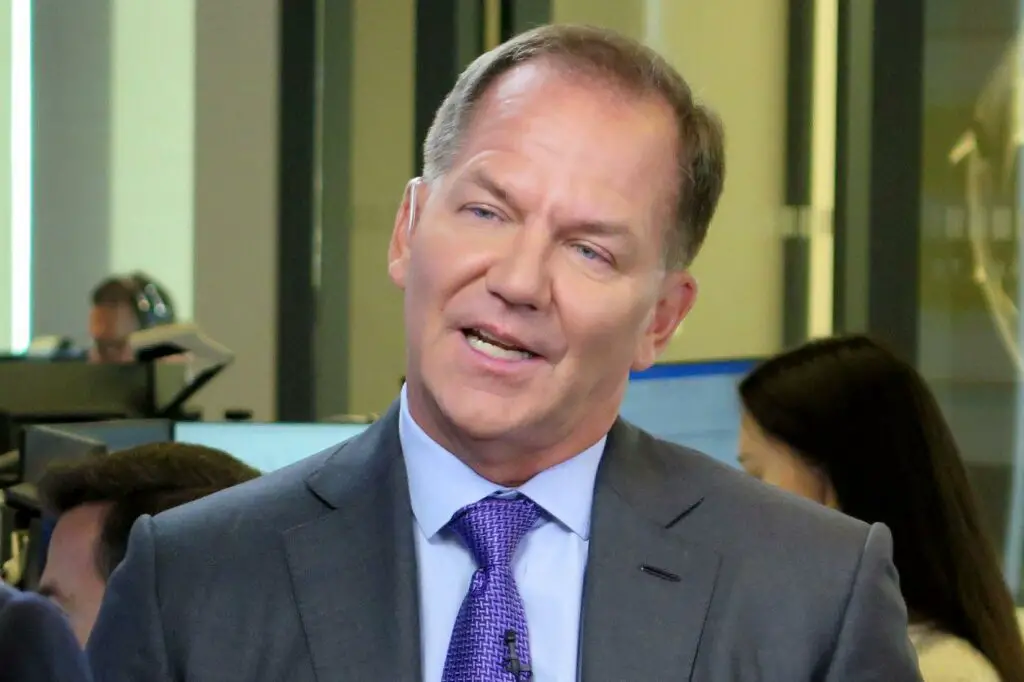
Paul Tudor Jones is known as one of the all-time greatest traders. He began trading in the 1970s and now manages a hedge fund that manages 17.5 billion. One of the billionaire’s most notable trading accomplishments is having predicted the market crash of 1987, in which he made over 100 million. After gaining decades of experience successfully trading, there’s a lot to learn from Jones. Here’s some of his best advice for traders.
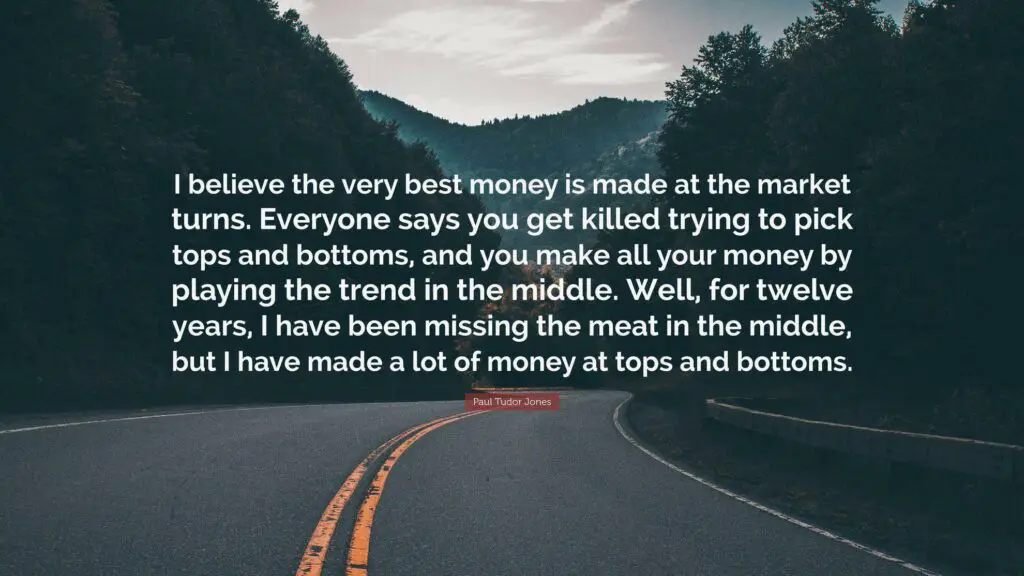
This contrasts with the philosophy espoused by the majority and trend traders. Trend traders attempt to take advantage of a trend once it’s already begun. These traders claim that the most significant profit is to be made in the middle of the trend, but Jones disagrees. Here, Jones says that attempting to profit off a trend that’s already begun isn’t as lucrative as figuring out when it will turn.
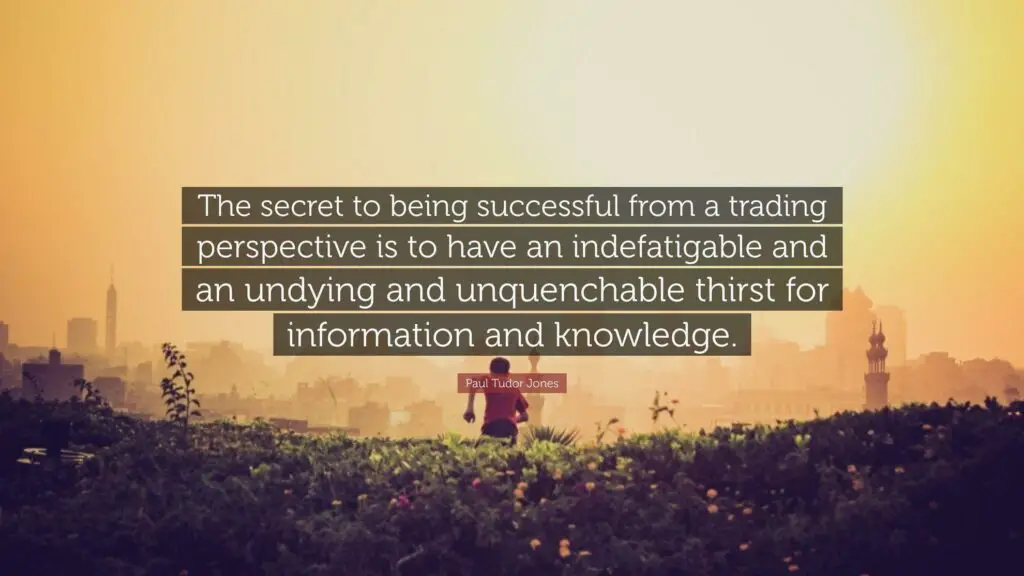
According to Jones, successful trading requires maintaining a constant state of curiosity. If you think you’ve learned everything there is to learn about the market, you’re wrong. The market is constantly changing, and if you want to keep up, you must continually be growing and adapting, which is only possible if you continue learning. It’s worth noting that a thirst for information and knowledge does not regularly change your approach to trading. You don’t want to get caught up in every new trading fad.
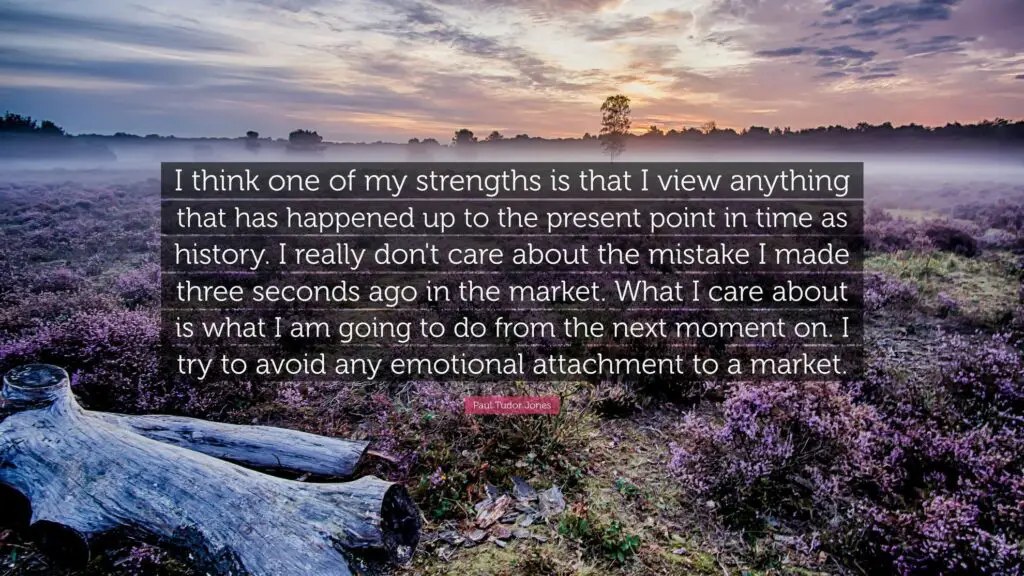
This is not the first quote to warn about becoming emotional about losses, but there’s a reason so many successful traders harp on this point. A trading mistake means losing capital and watching your hard-earned money disappear. This is never easy. It’s human nature to be upset, but you can’t let the emotion of a loss impact what you’re going to do next.
Once you become hung up on your past mistakes, you’ll either exit a trade at the wrong time because you fear losing more money or take on more risk than you can handle to make up for your loss. Neither of these options sets you up for success. Only by letting go of emotions surrounding past trades will you be free to see your current trades with clear eyes.
Ed Seykota
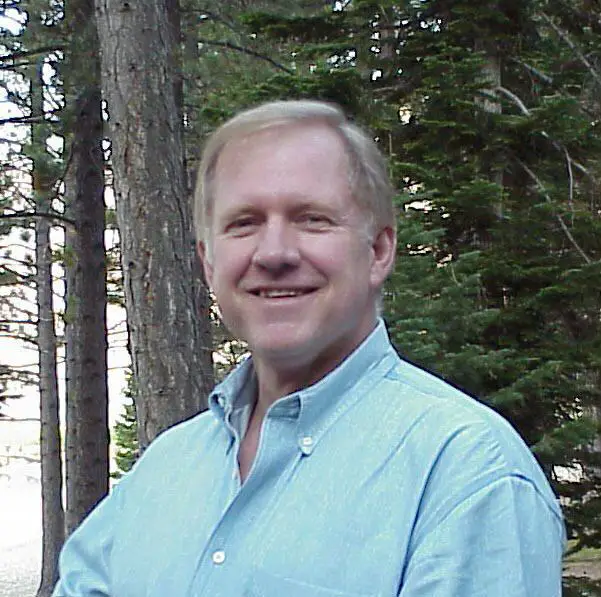
Next up is Ed Seykota. While Seykota may be less well-known than others in this post, his success as a trader has earned him a spot on the list of all-time best traders. Those who have heard of him may know him from his appearance in Jack Schwager’s Market Wizards.
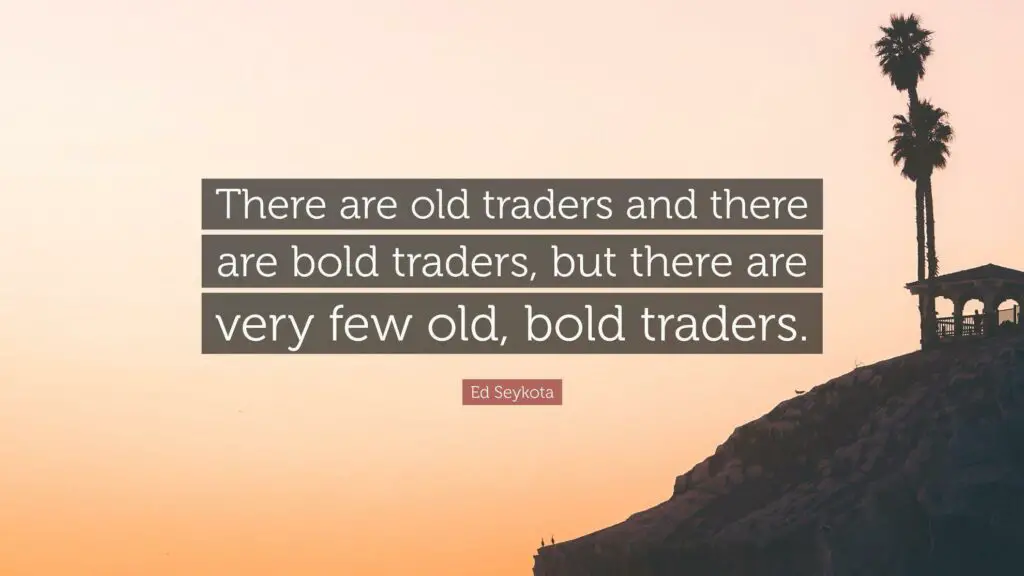
Trading comes with risk. A successful trader must learn to balance the risk with the potential for returns, but the allure of high risk, high return trades is hard to resist. Perhaps one high-risk trade may work out, but bold traders who take on more risk than they can handle end up paying the price.
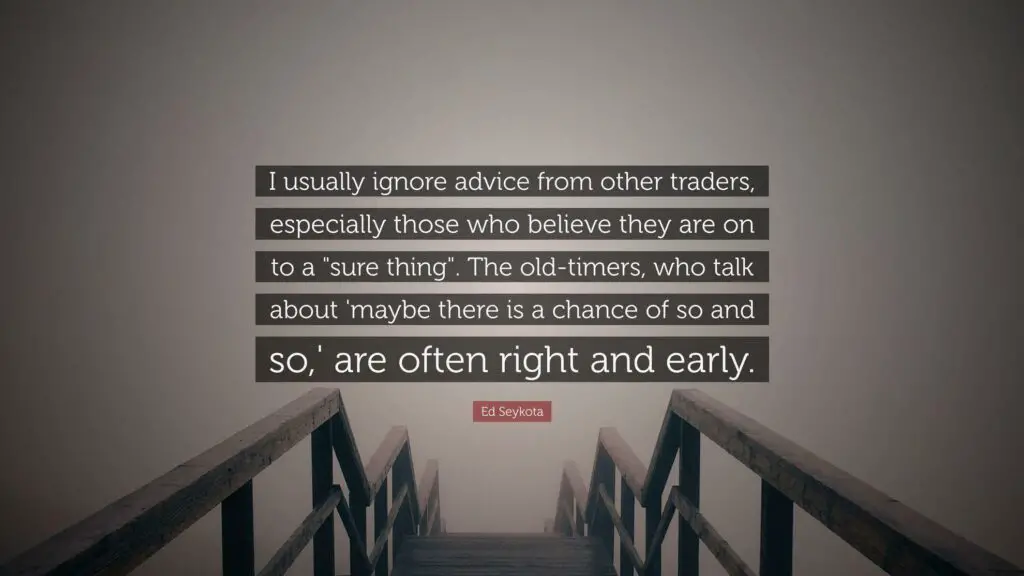
There are two critical takeaways from this quote. First, focus on your trades instead of becoming caught up in what other traders are doing. There’s always room to learn and grow as a trader, but there’s a difference between learning from others and taking others’ advice. Second, while there are plenty of great opportunities, there are very few “sure things” in the market. If someone mentions a “sure thing”, there’s a good chance they’re trying to sell you something. When trading, you should always think in probabilities.
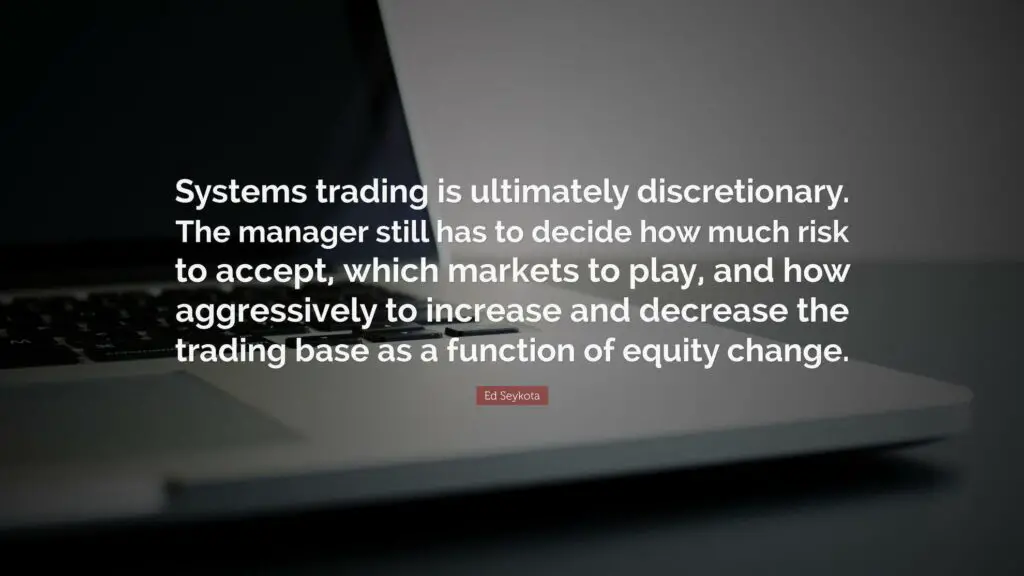
Seykota is known for limiting the impact of the trader’s emotions and biases through strict trading systems. While trading systems were an essential aspect of Seykota’s success, and there’s a lot to be said for the use of trading systems, an over-confidence in them can be misleading. Many traders, especially beginner traders, mistakenly believe that a trading system eliminates all decision-making, but as Seykota says, it is ultimately discretionary. The rules developed, the assets traded, and the code developed is all discretionary.
Jim Simons
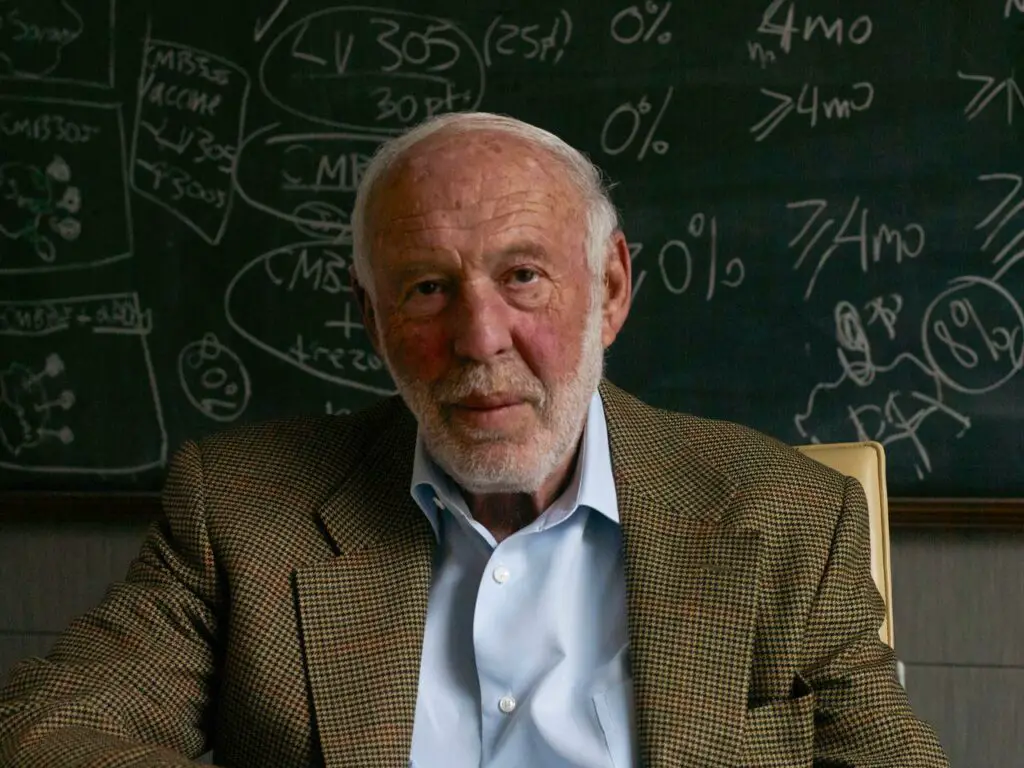
To conclude this post, we’ll look at some great trading quotes from Jim Simons. Simons is the manager of Renaissance Technologies and the most successful money maker in modern finance. Since 1988, the flagship Medallion hedge fund averaged 66% annual returns before fees.
Before becoming a hedge fund manager, Simons worked as a math professor at the university level, and his mathematical contributions helped develop string theory. Simons’ work as a mathematician informs his trading. His systematic trading philosophy is based on quantitative models that rely primarily on mathematical and statistical analysis. According to Forbes, Simons’ net worth is estimated to be $23.5 billion, and in 2019 he was the number one highest-earning hedge fund manager.
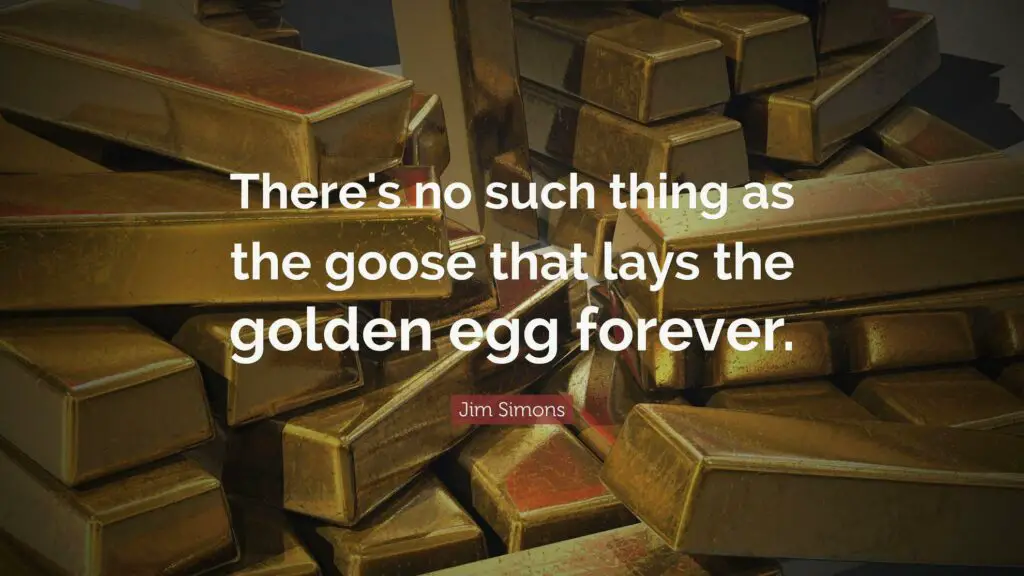
Change is inevitable. Over time, markets will change; industries will change; regulations will change, etc. The “goose that lays the golden egg now” won’t always. It’s essential to find a trading strategy that works for you, but it’s just as important to remain flexible and capable of changing when the time comes.
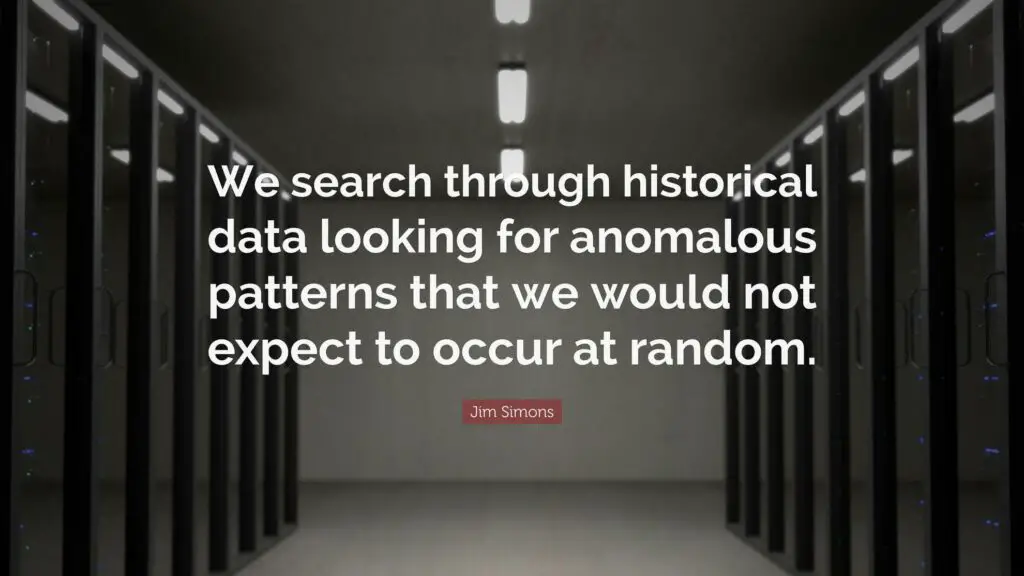
Simons trading system is based on mathematical analysis, specifically, pattern recognition. The foundation of this approach is explained in this quote. Finding patterns is all about looking at the data and figuring out what is and isn’t random. While most of us will never be mathematics professors or help develop a new theory about the makeup of the universe, this concept of looking for patterns is something we could all apply to our trading.
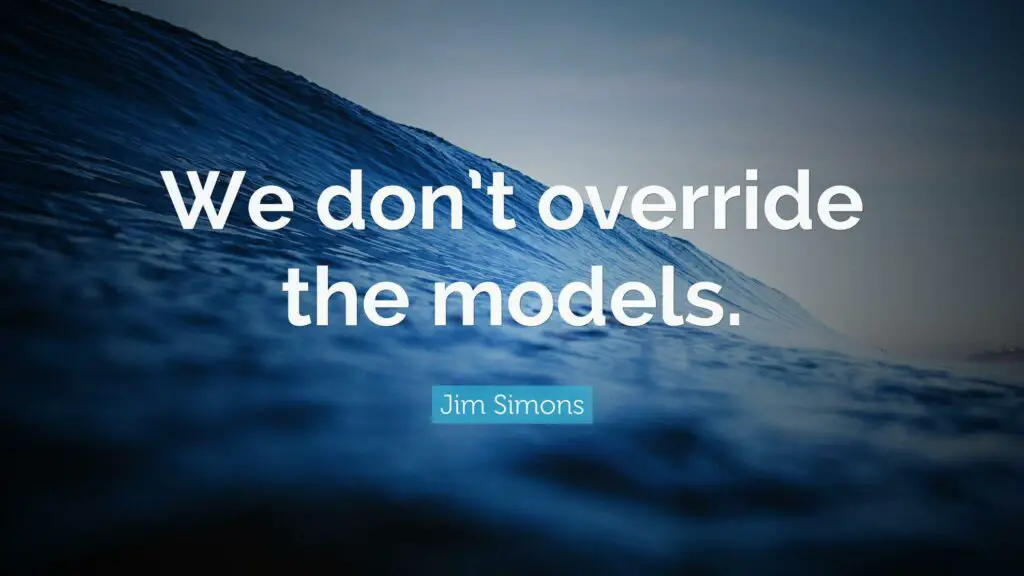
It’s often incredibly tempting to ignore your trading models in times of elevated uncertainty. I’ve been there — but it doesn’t make sense to spend years developing a model that has statistical significance just to throw it out the window when you wake up without your morning coffee. Develop statistically sound diversified models and stick to them.
The Bottom Line
There are legendary discretionary, systematic, and quantitative traders that trade different instruments and timeframes. What’s important is to adopt a trading style that suits your psychology and immerse yourself in your craft.